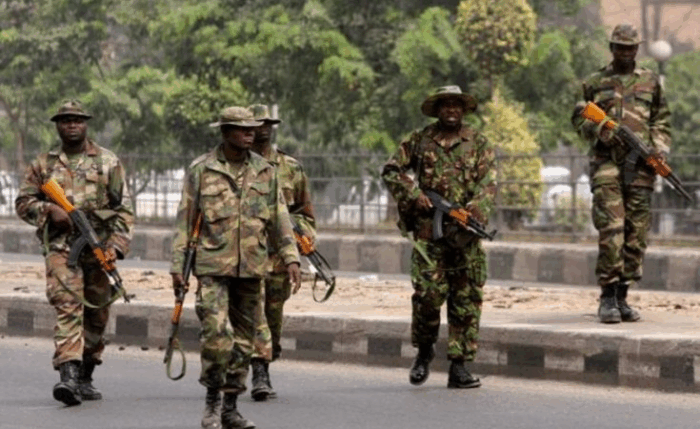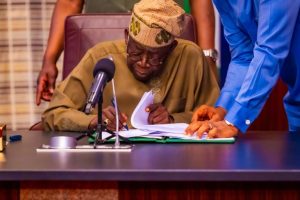
A Nigerian soldier made a video showing the small quantity and poor quality of foodstuffs nine soldiers were given to survive on for one month, with each soldier’s allowance at N60,000.
In the viral video shared on Instagram, a soldier opens bags of foodstuffs that were allocated to the troops, emphasising their insufficiency to cater to nine personnel.
The foodstuffs included five pieces of fried fish, a paint of garri, a paint of beans, half a sack of spoilt sweet potatoes, two polythene bags of onions, one litre of red oil, four pieces of yam, a bag of semolina, a sack of rice and four tiny pieces of meat.
“All this for one month oh. One whole month. For N60,000 for each soldier!” the soldier commented.
The provisions also included one bucket, two pots and a pan, and a plastic drum of drinking water.
“My country people, abeg, make una see am. Make una see wetin person wan chop for one month,” the soldier cried.
A monthly food allowance of N60,000 per soldier would amount to N540,000, whereas the foodstuff retrieved in the video would cost far less than that amount.
Considering the nature of the work soldiers perform, they have to have good food and a balanced diet that would offer proper nourishment ahead of combat.
This unfortunate development contrasts President Bola Ahmed Tinubu’s promise in January to prioritise the welfare and operational readiness of military personnel, since the country moved to a military-first philosophy via the transformation agenda.
“This is not a favour, it is a duty to those who defend us,” Tinubu had said through Kashim Shettima, his deputy.
This claim was also reaffirmed on July 6 at the National Army Day Celebration in Kaduna by Lieutenant General Farouk Yahaya, the former Chief of Army Staff, and Lieutenant General Olufemi Oluyede, the current Chief of Army Staff, who pledged once again to prioritise army personnel welfare to ensure their readiness and well-being.
However, the plight of the soldiers, as shown in this recent video, depicts a different reality. Their pleas cast a shadow over the government’s assurances, raising critical questions about the implementation of welfare policies and the realities of Nigeria’s defenders on the frontlines.





